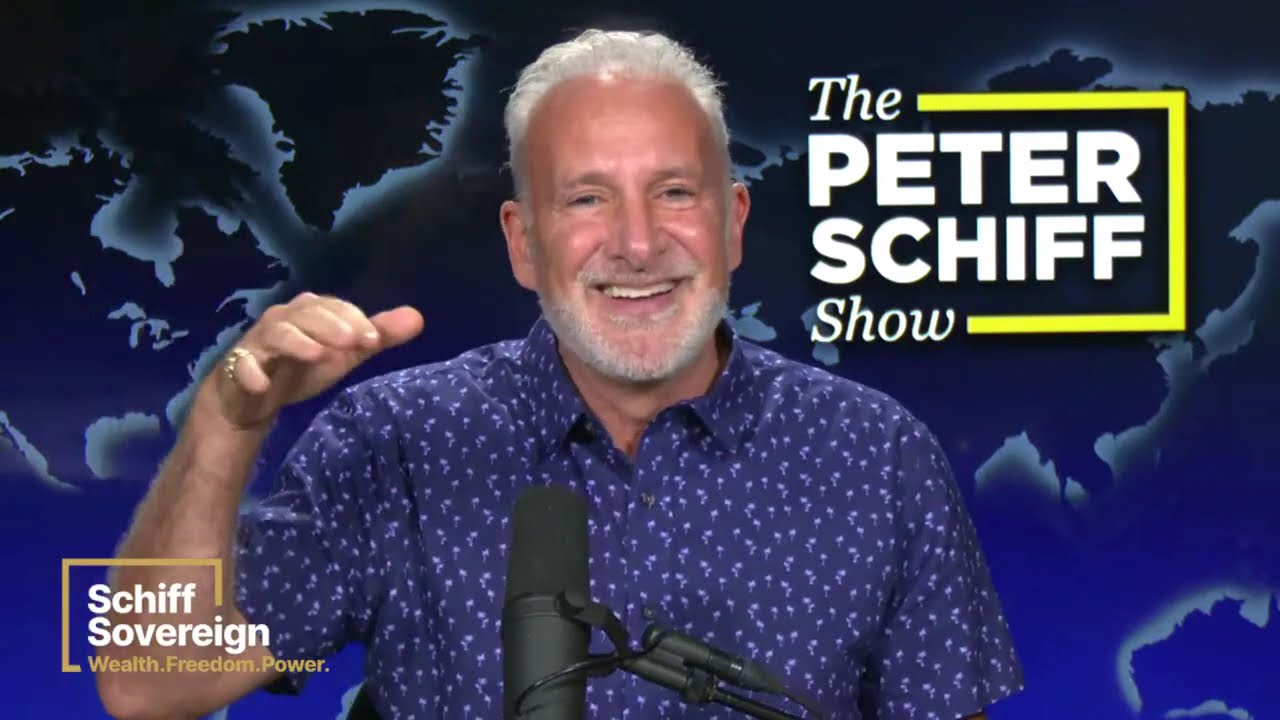Peter caps off a very newsworthy week, in which the decisive Trump victory shocked the media class and another Fed rate cut was announced. Peter analyzes both events, arguing against the unbridled economic optimism of Trump’s supporters and criticizing Jerome Powell’s stance on Fed independence and his alarming lack of concern for a future of stagflation.
Peter starts by highlighting the inconvenient trade-off between taxes and government spending. Trump promises new tax cuts, but these will need to be offset by spending cuts, lest the national debt balloons even further out of control:
Trump would have to maybe have a fireside chat in front of the American public and level with them.
He can say, when I was running for president, I promised a lot of things.
I promised a lot of tax cuts… we really need higher taxes if we can’t get some serious cuts in spending.
And so that’s what we’re going to try. I’m going to ask Americans to pitch in and tighten their belts.
While both the Republicans and Democrats like to take credit for for the country’s economic growth, the reality is that much of this “growth” is an artificial boom induced and sustained by decades of expansionary monetary policy by the Federal Reserve:
The problem was we didn’t have a strong economy. We had a bubble. We had a fragile economy.
In fact, we’ve been blowing a bubble in this economy ever since the 1990s. Greenspan is the architect of this house of cards.
He’s been blowing all the air in and every president going back to Clinton has been hiding behind his bubble and has been taking credit for the fake economic growth that has been a consequence of this ever-expanding bubble.
With the stock market lifted by Trump’s success, Peter argues the best time to switch into US equities is when the aforementioned bubble pops. It’ll be painful in the short-term, but that’s when stocks will be a bargain:
The time to load the boat with US stocks is not when they’re historically expensive. I’m waiting for blood in the streets. I want the collapse to happen…
Now, I know when we initially do that and the economy is in recession and everybody is pessimistic, that’s when I’m going to be optimistic, because I’m going to know that this is the bitter tasting medicine that we should have swallowed a long time ago.
Pivoting to the Fed rate cut, Peter points out that the Fed may have cut rates by less than they would have had Kamala Harris been elected instead of Donald Trump:
You would assume that if we’re going to have a stronger economy, the Fed should reconsider the rate cuts, maybe even pause or hike rates.
I thought, well, there’s no chance the Fed’s going to do that. Trump would go ballistic—they’re going to cut. And that’s exactly what they did.
One reason the dollar has been so strong is that people are thinking, well, maybe the Fed won’t cut as much now that we’re expecting a stronger economy.
Peter takes aim at Jerome Powell’s political cowardice, in which he uses the Fed’s independence as an excuse to avoid criticizing bad fiscal policy:
Being independent doesn’t mean you have to keep your mouth shut and you can’t speak your mind and you can’t be critical.
It actually means the opposite of it.
When you’re independent, you’re not influenced by politicians, so you could say whatever the hell you want to say.
You can criticize whoever you want to criticize, and that is exactly what his job is.
At Thursday’s Fed press conference, Powell dodged a question about the possibility of stagflation. Peter sees this as a major gaffe:
He [Powell] kind of says, “Well, our plan for stagflation is to hope there is no stagflation.”
Then he laughed, realizing how ridiculous that sounded.
I mean, what kind of plan is that? Your plan is to hope it doesn’t happen. .. Because obviously, it’s possible.
So, what are you going to do? That’s the question, not what you hope will happen. What’s your plan?
They’ve got no plan. That’s why they hope it doesn’t happen.
But, you know, Murphy has a law, right?
Anything that can go wrong will go wrong. We’re going to have stagflation.
Donald Trump’s has likely halted economic progressivism from corrupting the White House, but with the debt still expanding and the Federal Reserve still setting price controls on interest rates, the economy is far from healthy.
Loading…
Originally Posted at; https://www.zerohedge.com//

